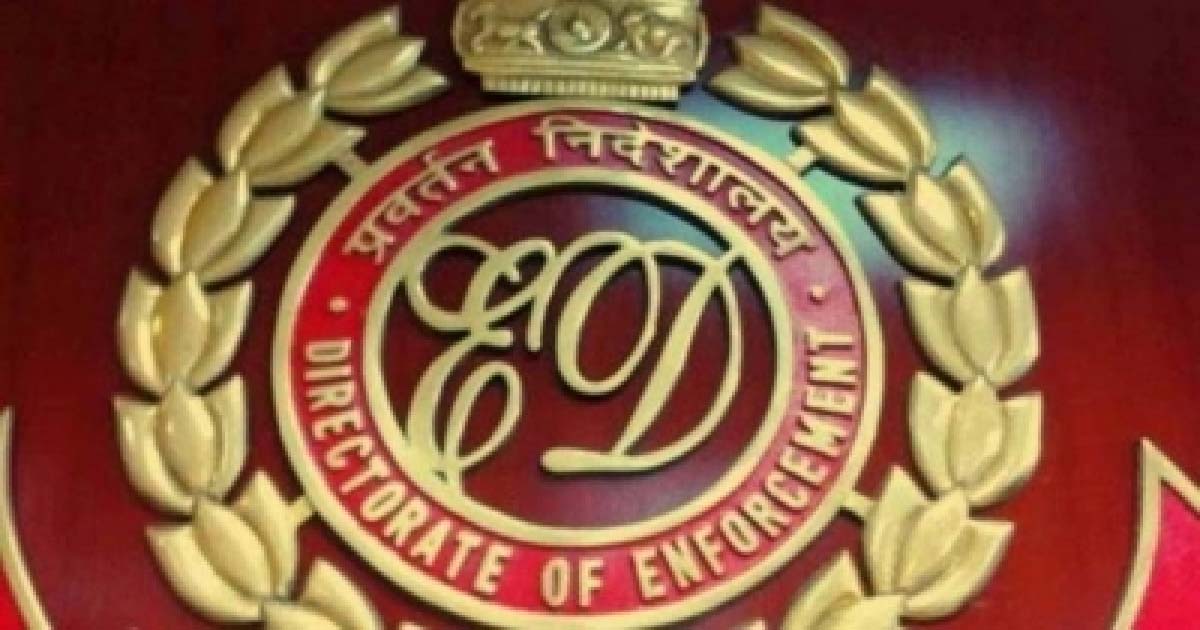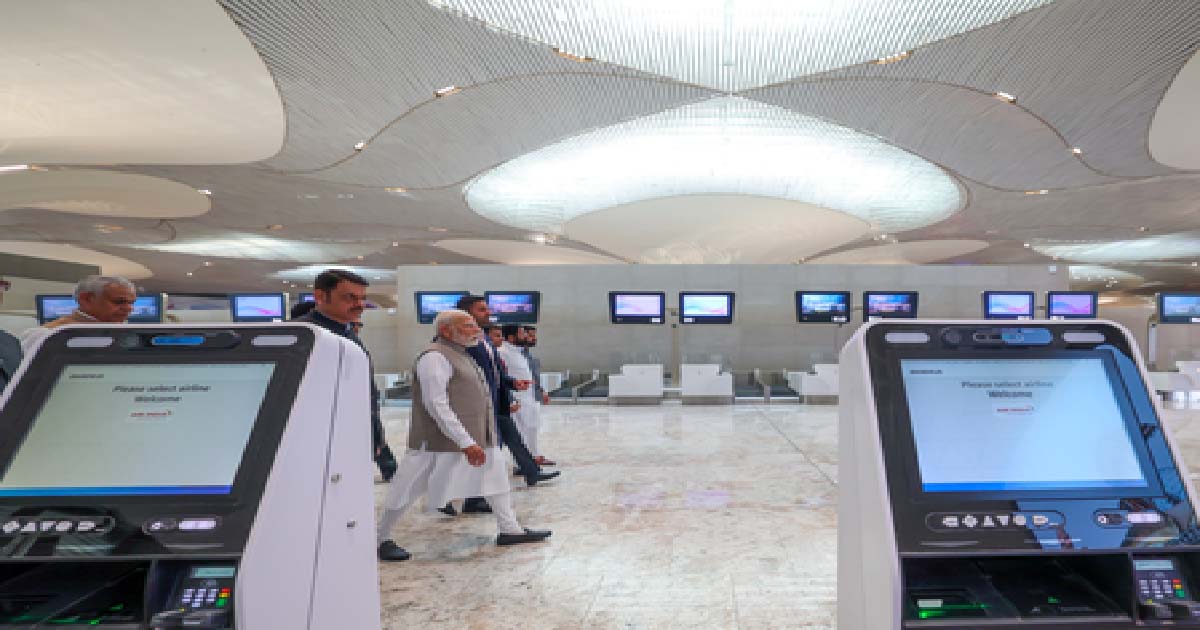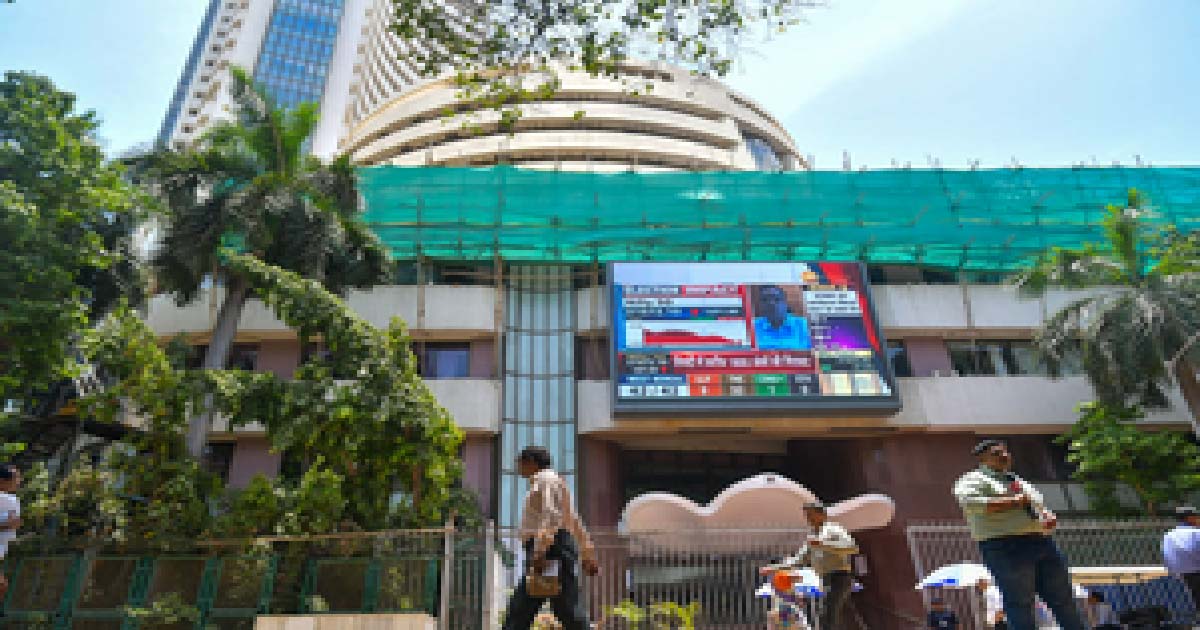Business
FICCI CASCADE, Ministry of Consumer Affairs join hands to encourage youth to participate in nation building

FICCIs Committee Against Smuggling and Counterfeiting Activities Destroying the Economy (CASCADE) has joined hands with the Ministry of Consumer Affairs to encourage the countrys youth to be part of the socio-economic development of the nation by creating a youth movement against smuggling and counterfeiting.
In this endeavour, FICCI CASCADE in association with the Ministry is organising a painting competition on the theme “Youth for Socio-Economic Development – Paving the Way for India’s Amrit Kaal”.
With the objective to generate awareness on the adverse impacts of smuggling and counterfeiting, especially among school children who are the consumers of tomorrow, this competition is being organised as a run-up to the World Consumer Rights Day celebrations by the Ministry of Consumer Affairs.
This day, which is celebrated world over on March 15, stands in solidarity with the international consumer movement, demanding consumer rights to be respected and protected.
The inter-school painting competition is open for students from Class IX to XII from schools across the country. The top three entries will receive a certificate of recognition, along with cash prize of Rs 50,000, Rs 25,000 and Rs 15,000, respectively.
The participants can send their work at cascade@ficci.com by March 2. The winners will be awarded during the World Consumer Rights Day celebrations organised by the Ministry.
Rohit Kumar Singh, Secretary, Ministry of Consumer Affairs, said, “Our future generations are the hope for real change, empowering and strengthening them to act for national development will help in shaping the future of our country in a brighter and more prosperous manner.
“World Consumer Rights Day is celebrated every year by our ministry to protect the rights of consumers and to ensure that the consumers are not subjected to market abuse or social injustice that may undermine their rights.”
According to a 2019 FICCI CASCADE study, large scale smuggling in only five Indian industries resulted in a loss of Rs 1,17,253 crore to the economy. It also led to 16.36 lakh job losses.
Currently, India is the fastest-growing economy and is projected to be the world’s third largest economy by 2035. At this stage, it is imperative to put an end to smuggling and counterfeiting, which have the potential to derail the country’s growth momentum.
Anil Rajput, Chairman, FICCI CASCADE, said, “The youth of India are the country’s future. As India marks 75 years of its Independence and enters into Amrit Kaal, the 25-year-long Lead up to India@100, the youth will play a pivotal role in nation building and advocating socially responsible behaviour towards the country’s development.”
FICCI CASCADE is a dedicated forum on the agenda of combating smuggling and counterfeiting. Over the years, FICCI CASCADE is working on creating awareness on tackling this problem which is a serious threat to public health and safety. Along with policy makers, industry, enforcement officials and media, CASCADE has been working closely with the country’s youth in its fight to address this issue through various inter-school and inter-college competitions and programmes.
In a global first, FICCI CASCADE also launched the Anti-Smuggling Day on February 11 this year to raise greater consciousness and create a global response in addressing this menace.
Business
ED arrests real estate firm MD in PMLA case, accused sent to 14-day custody

New Delhi, Nov 15: The Enforcement Directorate (ED) has arrested Ocean Seven Buildtech Pvt. Ltd. (OSBPL) Managing Director Swaraj Singh Yadav after conducting searches at nine locations across Delhi-NCR and other regions in a money-laundering probe under the Prevention of Money Laundering Act (PMLA), 2002, an agency statement said on Saturday.
The action stems from allegations that Yadav diverted and laundered funds collected from homebuyers across multiple projects, including those under the Pradhan Mantri Awas Yojana (PMAY).
The searches on Thursday led to the recovery of Rs 86 lakh in cash, suspected to be proceeds of crime, along with incriminating documents and digital evidence.
According to the ED, Yadav orchestrated a large-scale diversion of homebuyer funds through fraudulent cancellation and resale of units at inflated prices, cash-based premiums collected outside banking channels, and misuse of escrow accounts.
He allegedly routed substantial sums into shell entities and concealed cash proceeds with relatives, the ED statement said.
Investigators also found a pattern of rapid liquidation of assets held personally and through company entities in Gurugram, Maharashtra, and Rajasthan, which the agency believes was intended to secure illicit gains and evade legal scrutiny.
His wife and children have already relocated to the United States, the probe revealed.
The agency said Yadav operated a dual-payment mechanism in the resale of PMAY flats and even in the sale of parking spaces — routing only nominal amounts through banks while collecting the bulk in cash. These activities form part of a wider probe linked to multiple FIRs alleging cheating, forgery, and other predicate offences.
Following his arrest, Yadav was produced before the Court of ASJ-06 at Patiala House Courts on Friday, in compliance with Supreme Court directions.
After detailed submissions from both sides and a pass-over granted to allow him legal assistance, the court sent him to ED custody for 14 days, until November 28.
The agency has been directed to produce him before the court at 2 p.m. on the date of expiry of remand.
The ED said it is pursuing further investigation to trace, freeze, and attach assets acquired from the laundered funds, to ensure recovery and restitution to affected homebuyers.
Business
IndiGo to start flights from Navi Mumbai International Airport from Dec 25

Mumbai, Nov 15: Low-cost airline IndiGo on Saturday announced flight operations from the newly-opened Navi Mumbai International Airport (NMIA) starting December 25, connecting the airport to 10 cities across the country.
IndiGo will connect the future-ready airport to 10 cities, including Delhi, Bengaluru, Hyderabad, Ahmedabad, Lucknow, North Goa (Mopa), Jaipur, Nagpur, Cochin, and Mangalore, the airline said in a statement.
The airline said it plans to expand operations at NMIA progressively by adding direct routes to more destinations in due course.
NMIA, the second airport in the Mumbai metropolitan area, is designed to complement Chhatrapati Shivaji Maharaj International Airport and meet growing demand for air travel from India’s financial capital.
NMIA is expected to enhance regional connectivity and support economic development in western India due to its strategic location.
By enhancing regional connectivity and supporting economic development in western India, the launch of IndiGo’s operations will connect the airport to its vast domestic network of 95 airports across the country, it added.
The Navi Mumbai International Airport was inaugurated by Prime Minister Narendra Modi last month, as a major achievement in India’s economic development and “a symbol of Bharat’s aspirations”.
PM Modi said that Mumbai welcomed its second international airport, marking a significant milestone in its journey to becoming Asia’s premier connectivity hub. “Through this new airport, the farmers of Maharashtra will be able to connect with supermarkets in Europe and the Middle East as well,” he observed.
NMIA will ease congestion at Chhatrapati Shivaji Maharaj International Airport and significantly increase India’s aviation capacity.
The Navi Mumbai International Airport Private is designed to accommodate both domestic and international passengers, featuring state-of-the-art facilities. It includes a 3,700-metre runway capable of handling large commercial aircraft, modern passenger terminals, and advanced air traffic control systems.
Business
Stock markets end week on a strong note as NDA secures landmark win in Bihar

Mumbai, Nov 15: Indian equity markets ended the week on a strong note, with benchmark indices gaining on the resolution of the US government shutdown, supported by strong domestic fundamentals, better-than-expected Q2 earnings, easing inflation and NDA’s historic victory in Bihar, according to analysts.
Record-low October inflation reinforced expectations of an RBI rate cut, adding momentum to domestic equities.
According to Vinod Nair, Head of Research, Geojit Investments Limited, sectoral momentum was broad-based, led by gains in IT, Pharma, healthcare and Auto stocks.
“Toward the week’s close, the NDA’s Bihar election victory bolstered investor confidence, but fading expectations of a U.S. Fed rate cut triggered profit booking in IT stocks, tempering their earlier gains,” he mentioned.
The indices remained under pressure for most of the session on Friday, oscillating between losses and brief recoveries, before a strong late-afternoon rebound pushed them into the green.
Volatility picked up as markets tracked the Bihar election outcome, the day’s key trigger.
Sentiment was also weighed down by weak global cues after Wall Street fell sharply overnight, led by declines in Nvidia and other tech majors as investors dialled back hopes of near-term rate cuts amid lingering inflation worries, according to a note by Bajaj Broking Research.
At close, the Sensex ended 84 points or 0.1 per cent higher at 84,563, while the Nifty finished 31 points up at 25,910. Sectoral trends were mixed, with PSU banks leading gains at 1.17 per cent, followed by firm moves in pharma and FMCG.
Energy and infrastructure saw mild upticks. On the downside, IT declined 1.03 per cent, while auto, metal, and realty ended lower.
Among the broader market space, Nifty Small-cap 100 rose 0.38 per cent, while the Midcap 100 gained 0.08 per cent.
According to analysts, Nifty on the weekly chart has formed a strong bull candle with a higher high and a higher low signaling pullback after two weeks of corrective decline, “in line with our expectations from the key support area of 25,400-25,300”.
Going ahead, bias continues to remain positive and a follow through strength above last month high of 26,100 will open upside towards the previous all-time high of 26,277 in the coming week.
Looking ahead, market direction will hinge on key macro triggers such as India’s PMI data, US jobless claims, FOMC minutes and progress on US–India trade negotiations.
-

 Crime3 years ago
Crime3 years agoClass 10 student jumps to death in Jaipur
-

 Maharashtra1 year ago
Maharashtra1 year agoMumbai Local Train Update: Central Railway’s New Timetable Comes Into Effect; Check Full List Of Revised Timings & Stations
-

 Maharashtra1 year ago
Maharashtra1 year agoMumbai To Go Toll-Free Tonight! Maharashtra Govt Announces Complete Toll Waiver For Light Motor Vehicles At All 5 Entry Points Of City
-

 Maharashtra1 year ago
Maharashtra1 year agoFalse photo of Imtiaz Jaleel’s rally, exposing the fooling conspiracy
-

 National News1 year ago
National News1 year agoMinistry of Railways rolls out Special Drive 4.0 with focus on digitisation, cleanliness, inclusiveness and grievance redressal
-

 Maharashtra1 year ago
Maharashtra1 year agoMaharashtra Elections 2024: Mumbai Metro & BEST Services Extended Till Midnight On Voting Day
-

 National News1 year ago
National News1 year agoJ&K: 4 Jawans Killed, 28 Injured After Bus Carrying BSF Personnel For Poll Duty Falls Into Gorge In Budgam; Terrifying Visuals Surface
-

 Crime1 year ago
Crime1 year agoBaba Siddique Murder: Mumbai Police Unable To Get Lawrence Bishnoi Custody Due To Home Ministry Order, Says Report












